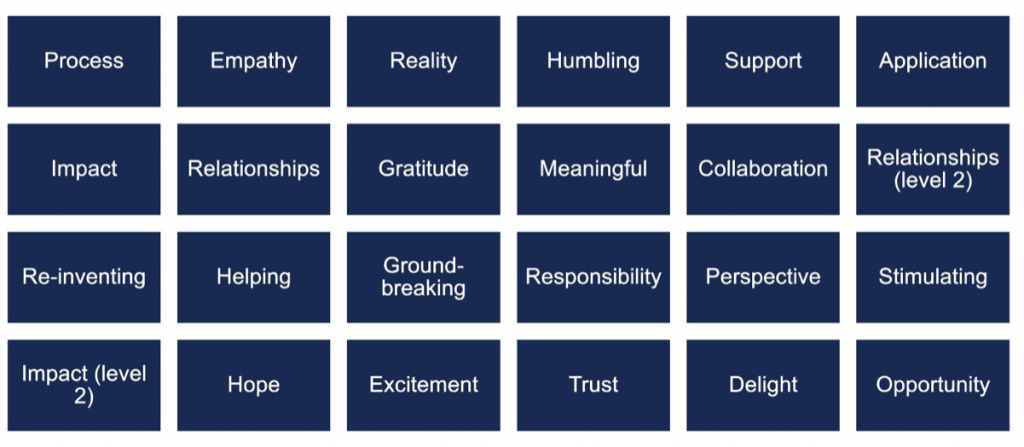Events & Promotions
|
|

GMAT Club Daily Prep
Thank you for using the timer - this advanced tool can estimate your performance and suggest more practice questions. We have subscribed you to Daily Prep Questions via email.
Customized
for You
Track
Your Progress
Practice
Pays
Not interested in getting valuable practice questions and articles delivered to your email? No problem, unsubscribe here.
- Nov 20
07:30 AM PST
-08:30 AM PST
Learn what truly sets the UC Riverside MBA apart and how it helps in your professional growth - Nov 20
10:00 AM EST
-10:30 AM EST
If you’re applying to Columbia, NYU Stern, or Yale SOM, you need more than strong stats. Each school defines “leadership” differently, and your essays must reflect that. Join Sia Admissions founder, Susan Berishaj on November 20th - Nov 20
09:00 PM IST
-10:00 PM IST
Join our free expert-led Essay Workshops to discover how to choose impactful stories, highlight your core values, and align your background with each school’s distinct culture, making every word truly count. - Nov 21
08:30 AM EST
-09:15 AM EST
Get the inside scoop on what makes Emory’s Goizueta Business School great, learn how you can present a strong MBA application, and connect with an Admissions Director to get your questions answered. - Nov 21
09:30 PM IST
-10:30 PM IST
Learn how to craft powerful, authentic essays by mastering the 3 “WHYs” every top MBA program looks for: Why MBA, Why Now, and Why This School. - Nov 24
08:00 PM PST
-09:00 PM PST
Inquire for a free profile evaluation and guarantee statement for possible admits and scholarships!
Kudos
Bookmarks
| FROM LBS Admissions Blog: LondonCAP 2020 Met Police Case Study |
|
By Jessica Crossfield, MBA2021 This year, 143 MBA2021 students delivered 32 LondonCAP group consulting projects for clients virtually. Here, Jessica Crossfield speaks about how her team developed a strategy to improve and enhance the culture within the Metropolitan Police. Among the plethora of options for experiential learning offered at LBS, LondonCAP offers MBA students a terrific opportunity to apply and test their learning in a real-life setting with companies across a range of sectors including financial services, technology, retail and the public sector. This year, I delivered a virtual LondonCAP project for the Metropolitan Police Service (hereafter ‘the Met’). The Met is London’s police force, responsible for providing law enforcement across the 32 boroughs, leading UK-wide counter-terrorism efforts, and protecting the royal family. The Met is the largest police force in the UK, and one of the largest in the world. COVID-19 aside, the scope of policing has changed dramatically in recent years. The communities that police protect are increasingly diverse and complex, and the landscape of crimes has shifted to include cyber-crimes and cyber-terrorism. These changes combined with a recent reorganization of the Met have put a strain on the members of the force and subsequently its culture. To receive support on adapting to these new challenges, the Met reached out to LBS with the intention to co-create a strategy to improve and enhance the culture which had become increasing fraught, with individual and interpersonal mental health issues and generally decreased workplace satisfaction. The project was managed through the LondonCAP programme, where we worked as a team of four under the guidance of Richard Hytner, a professor at LBS and a member of the executive board of the Met Police. In typical LBS fashion, my team came from a range of backgrounds (investment banking, engineering, and project management) and nationalities (UK, Germany, and USA). Our first week on the project, we met with Marcus Barnett, the Detective Chief Superintendent of the Central East Borough Command Unit (BCU). Marcus was new to the role, and wanted our help turning his vision for the BCU into a reality. He created a framework to support the culture transformation, asking us to gather information and make recommendations in four key areas: culture, communication, care, and capability. We were given years of written feedback and survey data regarding the culture at the Met, and we were connected with leaders in various parts of the organization who would coordinate interviews and ride-a-longs, so we could get a firsthand view of the daily challenges faced by the officers and employees, particularly of those on the frontline. Shortly after our first meeting with the Met in late February, COVID-19-related lockdowns were announced throughout the world, changing the scope and feasibility of our project dramatically. Marcus, and the Met more broadly, had to quickly adapt to the new pandemic world we are living in – creating COVID-friendly operations to ensure the safety of officers and employees, responding to an increased number of domestic violence and cyber-security crimes, and enforcing the lockdown measures throughout London. As such, Richard took on a more central role in our project. As a member of the board with many connections throughout the organization, he was able to set up interviews for us with leaders and officers in different units throughout the Met. For the next two months, we aimed to interview two people each week in order to identify and assess current and developing pain points. Our interviews were staggered across levels and job functionalities. Before our first interviews, we spent time researching police culture and reading through the surveys that the Met provided us. Then, we developed a few hypotheses regarding the culture that we were able to test through our interviews. We came together as a group after each interview to debrief and revise our hypothesis, in order to continue drilling down to the core issues. We met with Richard on a bi-weekly basis where we discussed our findings and got guidance on what to assess next. We used the insight from our interviews to develop a strategy on how the Met can take advantage of the crisis to reinvent the culture. We came up with nine specific, actionable recommendations regarding officer autonomy, communication, and learning and development, providing a pathway to improving the everyday experience and wellbeing of officers. Our recommendations were very well-received by the leadership team we presented to on our last day! The leadership team included Nick Ephgrave, Assistant Commissioner, who is on the board and is one of the most senior officers in the Met. It was abundantly clear throughout this project that being a leader in the Met is not an easy job – there are constantly crises to respond to making it difficult to push forward less urgent ideas or actions. Given that, we are all hugely impressed at how thoughtful and forward-thinking the Met is. We had to revise our recommendations countless times because the Met had already tried to implement what we thought were unique solutions! Coming from a large corporate, it was an enlightening experience to see the inner workings of such a high-profile public sector organization. LondonCAP has been the highlight of my MBA so far – it was incredibly interesting and rewarding to work with an amazing team and to support the Met through such chaotic times. The post LondonCAP 2020 Met Police Case Study appeared first on Student and Admissions Blog - London Business School. |
This Blog post was imported into the forum automatically. We hope you found it helpful. Please use the Kudos button if you did, or please PM/DM me if you found it disruptive and I will take care of it.
-BB
Kudos
Bookmarks
| FROM LBS Admissions Blog: Introducing our new MiF Alumni Interview Series |
|
By Lucy Palin, MiF Admissions Manager With our Masters in Finance (MiF) Alumni spread across the globe and different sectors of finance, we want to give you an insight into as many of their experiences as possible. Each interview explores a different region or important topic and delves into our Alumni’s time on the MiF and their careers since. Our established Alumni will be interviewed by either a current student or recent graduate, allowing you to see how the MiF has developed and adapted as well as giving you an insight into the immediate and long-term impact of the MiF on their careers. Have a read below to find out about the Alumni joining us for our next two interviews. Make sure to keep up to date with our [url=https://www.london.edu/events/calendar#sort=%40eventstarts%20ascending&f:programme=[MIF]]events page[/url] so you can see who we will be interviewing in 2021! MiF Alumni Interview: Women in Finance 24 November, 14:00 UK time Lea Blinoff, MSc, LL.M, CAIA, American, MiF PT1995 Lea Blinoff, CAIA, has 30 years’ experience in the Financial Services industry. Lea is a Board member and Head of Solutions (Advisory, Discretionary and Alternatives) at Vestrata, including ESG Solutions. She has held senior leadership positions in capital markets, equity derivatives and private banking/wealth management, working with Barclays (BZW), Salomon Brothers, JP Morgan and HSBC, where she was a member of the Board of Directors of HSBC Private Bank (UK) Ltd. Most recently, Lea was Managing Director at Credit Suisse (UK) Ltd, and head of Advisory & Sales, responsible for Product Governance (including ESG, Sustainable and Impact Investments). She is a graduate of Duke University (BA), London Business School (MSc Finance), University of Law (GDL), and Queen Mary University of Law (LL.M in Banking & Finance). She completed the Global Leadership (INSEAD), Women Leading Change (INSEAD), and the Hedge Fund Institute (LBS). Lea is a member of the University of London Endowment Investment Committee. Lea holds the CFA Certificate in ESG Investing (Level 4), Fitch Foundations in ESG Investing, CISI Level 7, and is a member of US SIF, 100 Women in Finance, STEP (Affiliate), the Risk Management Association and the Global Association of Risk Professionals. She is a founding member of The Prince’s Trust Women’s Leadership Group, served as Chair of the Board of Trustees for the Jamie Oliver Foundation and Chair of the Development Board for Beanstalk Charity. Martha Mends, British, MiF PT2022 Martha holds a bachelor’s degree in Philosophy Politics and Economics from the University of Oxford. Martha is currently an Investment Professional at EMK Capital, a mid-market pan-European private equity fund, where she invests in high potential businesses and partners with management teams to transform growth. Prior to joining EMK, Martha was part of a global strategy team at Accenture where she advised Private Equity and corporate clients on commercial due diligence, market entry and corporate strategy projects in international locations including Prague, New York, Johannesburg and Moscow. Martha decided to join the Masters in Finance programme at LBS for two key reasons: to build a global network of exceptional professionals; and to strengthen her financial knowledge through the school’s world class faculty and curriculum. In addition to being a student ambassador, Martha is Chief of Staff of Black in Business and is an active member of the Private Equity and Venture Capital Club and Women in Business. In her spare time, Martha enjoys running, skiing and going to the theatre. MiF Alumni Interview: Latin America 15 December, 15:00 UK time Christian Villouta, Chilean, MiF FT2006 Previous to study the MIF at LBS, Christian worked 5 years at one of the largest Utility companies in Latam, mainly in Commercial and IT Projects. Later, he was one of the founders of a technological venture for the healthcare sector that was later acquired by a Pharma company in Chile. After graduating from the MiF, he continue working in London in a Hedge Fund, were he invested in small and equity listed companies in Western Europe, and where he used a friendly activist approach trying to get a sizeable share of the company and work with the management and the board on some strategic decisions to unlock value. 5 years later, Christian came back to Chile, where he ran the Asset Management unit of a Private Bank, leading also the investment committee. He also got involved in the launch of some alternative funds, in special residential real estate developments, and mezzanine funds for real estate developers. Christian is Currently CFO of one of the largest Investment Banks in Latam. Regina Lopez, Mexican, MiF FT2018 Reginais currently Head of Finance at Casai, a Latam start up that merges smart home technology and premium accommodation to innovate the hospitality industry. Before that she was Senior Associate at Thor Urbana, a leading real estate investment and development company in Mexico City. Prior to attending LBS, she worked at the Central Bank of Mexico, leading the MXN-trading desk. Regina is also a dedicated cook, an avid reader and a gym enthusiast. Remember to sign up to join the interviews [url=https://www.london.edu/events/calendar#sort=%40eventstarts%20ascending&f:programme=[MIF]]here[/url]. The post Introducing our new MiF Alumni Interview Series appeared first on Student and Admissions Blog - London Business School. |
This Blog post was imported into the forum automatically. We hope you found it helpful. Please use the Kudos button if you did, or please PM/DM me if you found it disruptive and I will take care of it.
-BB
Kudos
Bookmarks
| FROM LBS Admissions Blog: Digital for Impact Week 6: Virtual Guest Speakers |
|
[b]By Dominic Hughes, Manager, Experiential Learning [/b] Dominic is a Manager in the Experiential Learning team at LBS. When he isn’t delivering Digital for Impact he works on the LondonLAB and LondonCAP experientials. Dominic is Bilingual (English and Chinese) and is passionate about learning through experience. At Experiential Learning, we’re here to create courses with real impact, not just on students, but also on the communities they serve. We’ve taken this to its very literal meaning with our new course Digital for Impact, where MBA, EMBA and Sloan students have been working together on remote group consulting projects for East African clients. We’ve used a range of techniques to provide students with a rich set of resources to support their work on the course. One technique, used a lot both in in-person teaching and in virtual teaching, is the input of guest speakers. Students on our course have been fortunate to have had input from some compelling guest speakers. In this iteration of Digital for Impact, students have had three guest speaker sessions so far. The first was with [url=https://www.linkedin.com/in/nick-hughes-7078712/]Nick Hughes[/url], founder of [url=https://www.vodafone.com/what-we-do/services/m-pesa]M-PESA[/url] and [url=https://m-kopa.com/]M-KOPA[/url], both at the forefront of digital innovation with impact in East Africa. The second session was with [url=https://www.linkedin.com/in/elohogm/?originalSubdomain=ng]Eloho (Omame) Gihan-Mbelu[/url], Managing Director of [url=https://endeavor.org/location/nigeria/]Endeavor Nigeria[/url], a not-for-profit stimulating global entrepreneurial activity by providing mentorship to innovative founders based in emerging markets. Our third guest speaker session was with [url=https://www.london.edu/faculty-and-research/faculty-profiles/s/spungin-j]Jessica Spungin[/url], Adjunct Professor of Strategy and Entrepreneurship at London Business School, ex-Partner at McKinsey and a committed practitioner of Experiential Learning. What is the common thread that unites all these guest speakers which makes their presence impactful? [list][*][b]Relevance to course[/b]. All three of our guest speakers provided inputs which complemented the students’ work on their consulting projects focused on digital innovation and its impact. Eloho’s session allowed her to share her experience of working in Nigeria, Nick’s session gave students an insight into digital innovation in the region, and Jessica’s session focused on core consulting skills. [/*][*][b]Focused topic[/b]. As mentioned before, all the sessions had focus. This allowed our guest speakers to speak with confidence and in a structured manner. It also provoked well-considered questions from our students which added to the quality of the session! [/*][*][b]Relationship with course provider[/b]. All three of our guest speakers so far have completed degree programmes at the School. We are very fortunate at London Business School to have alumni who are willing to share their insights with our current students. Having this strong School link allows us to further build our community through guest speaker sessions, which have the potential to inspire students [/*][/list] The key takeaway here is that guest speaker sessions need to be considered carefully and linked to the course you’re providing. Drawing from the expertise of the School community is also an effective way to deliver impactful guest speaker sessions. Next week we will return to hearing insights from Giri, one of the students on the course. The post [url=https://admissionsblog.london.edu/digital-for-impact-week-6-virtual-guest-speakers/]Digital for Impact Week 6: Virtual Guest Speakers[/url] appeared first on [url=https://admissionsblog.london.edu]Student and Admissions Blog - London Business School[/url]. |
This Blog post was imported into the forum automatically. We hope you found it helpful. Please use the Kudos button if you did, or please PM/DM me if you found it disruptive and I will take care of it.
-BB


























